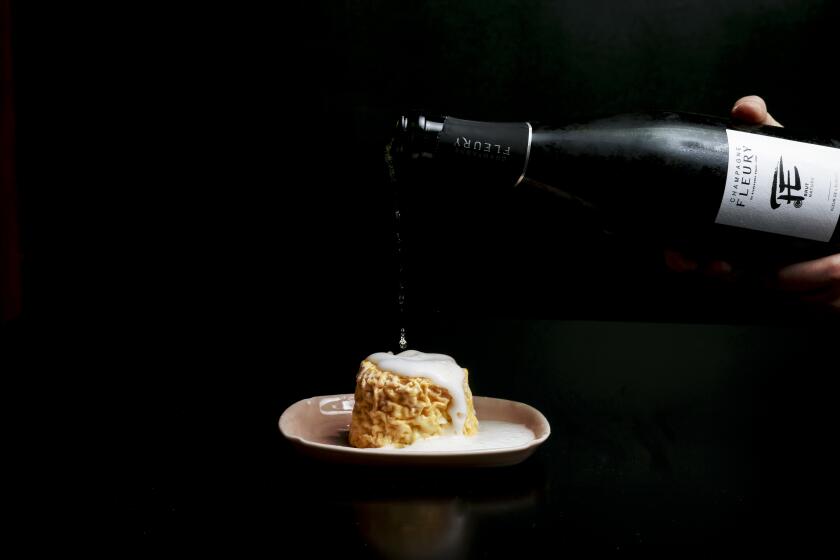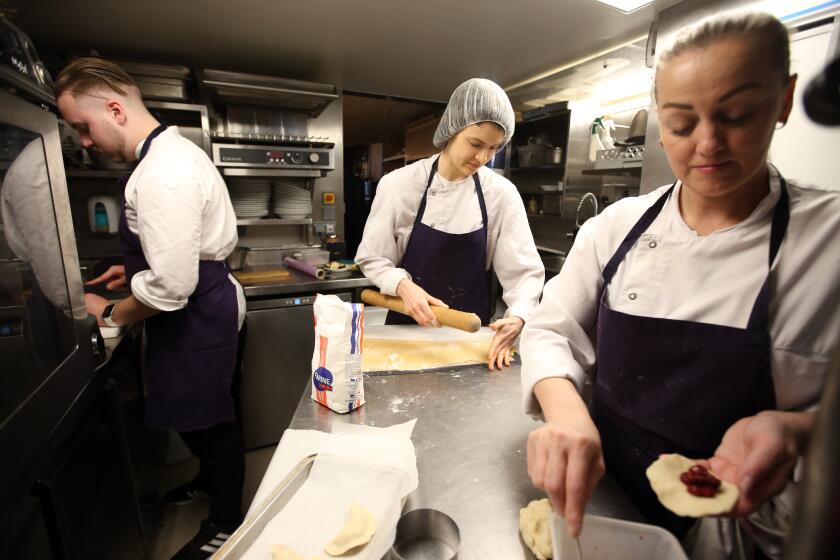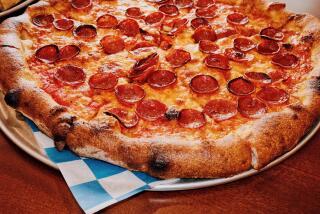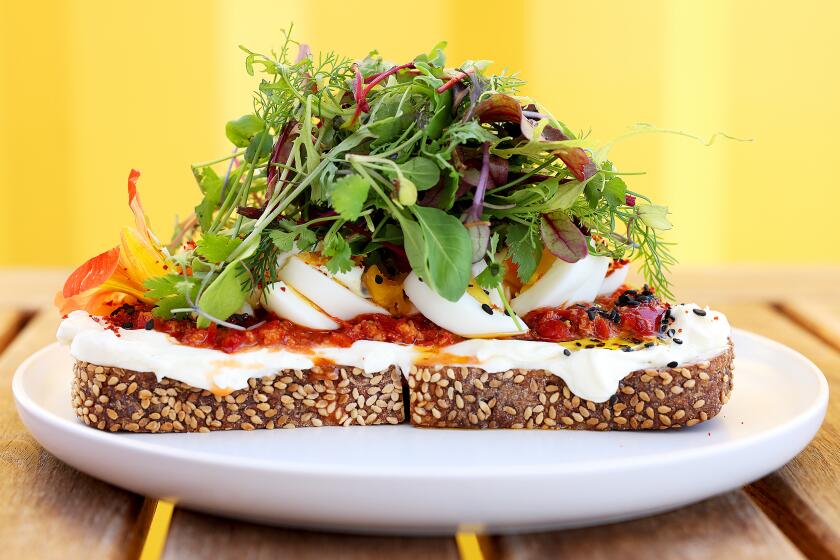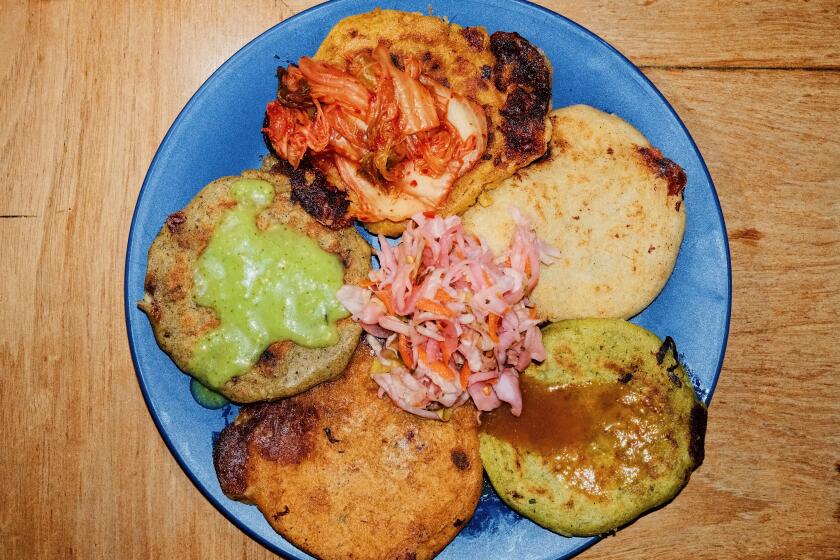Why Le Coucou chef Daniel Rose says French Basque cooking is right for Los Angeles
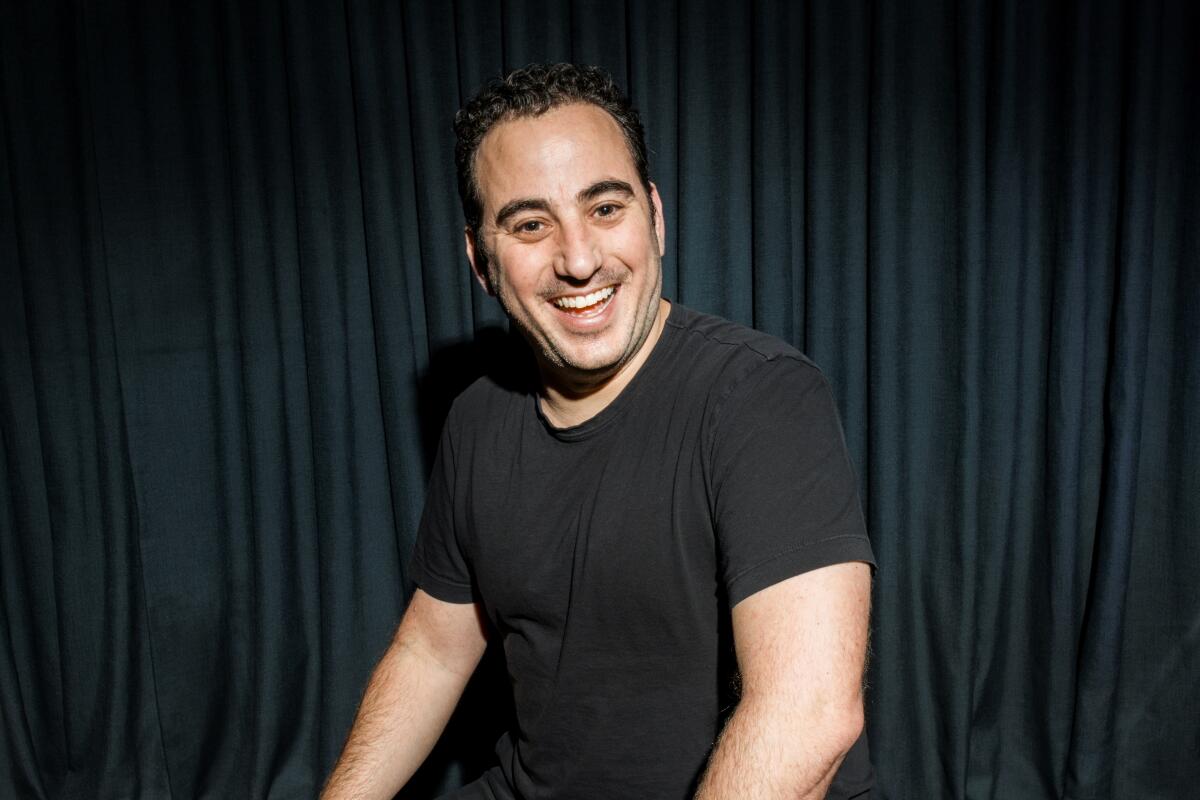
Sunshine, surf culture and olive oil are only part of what inspired Le Coucou’s chef Rose to open a French Basque restaurant in Los Angeles this summer.
In July, a bit of Basque French Country is set to land in downtown L.A. in the form of chicken long-stewed with Espelette pepper; green peppers stuffed with shallots, rice and cinnamon; and grilled duck breast with vine clippings and cherries. In a way, the European coastal region is, Daniel Rose says, a mirror image of Los Angeles, and he intends to showcase its similarities in flavor and culture when he opens Café Basque at the base of downtown’s Hoxton hotel.
It marks the first West Coast restaurant for the Michelin-starred Le Coucou chef, and only his second in the United States, as well as the first time the France-based chef will shape a restaurant around Basque cooking.
“I am addicted, in some ways, to this notion of bringing the French way to different places,” Rose said in an interview. “I think that there are great cities in the world that have a tremendous amount of character, a tremendous amount of diversity, that have a different way of looking at the world — and I find that absolutely thrilling.”
Jenn Harris’ favorite dishes of the week, including Champagne cheese, potato tacos, dim sum, dumplings and fried chicken.
Rose, born and raised in Illinois, set off to study in France 24 years ago and never really left. The chef with a passion for the classics and art history finished his studies in Paris, and wanting to remain in France, decided to pursue cooking, enrolling in the Institut Paul Bocuse.
From there, he apprenticed and cooked his way through Brittany, the South of France and other locales — with a detour to Guatemala in 2004, where he cooked French cuisine with Central American ingredients for nearly two years at a chic hotel in Lake Atitlán — then returned to Paris to open Spring, a runaway success of a market-driven, 16-seat destination with a fixed menu in 2006. Reservations filled up months at a time. Le Figaro food critic Emmanuel Rubin visited a few weeks into Spring’s opening and wrote one of Rose’s favorite observations to this day: That it was a restaurant that resembled life. “I don’t know how you can top that,” the chef said. “I thought it was very touching, and it set the tone for everything we did from then, on.”
Spring, which in 2010 expanded to a much larger location, closed in 2017. But ever since its rise to international acclaim, each Rose concept has focused on a different nuance of French cooking, be it fine dining, bistro, provincial or, in the case of his forthcoming Chicago restaurant — Le Select, due to open in late fall — a classic brasserie. Le Coucou, Rose’s first U.S. restaurant, opened in New York in 2016 to immediate fanfare; devotees still scoop up reservations for its ode to high-end, traditional French cuisine and revived dishes from decades and even centuries past.
In Los Angeles, Basque cuisine simply made sense.
“I thought, ‘What is it about Basque cooking that fits with Los Angeles?’ For me, California is defined by the sunshine, in some ways,” he said. “There are a few places in France where there’s a Cuisine du Soleil, [or] ‘cooking from the sunshine.’ In my brain it would be weird to cook things from Normandie in Southern California, but there are natural places already in France that have this tradition of Cuisine du Soleil.”
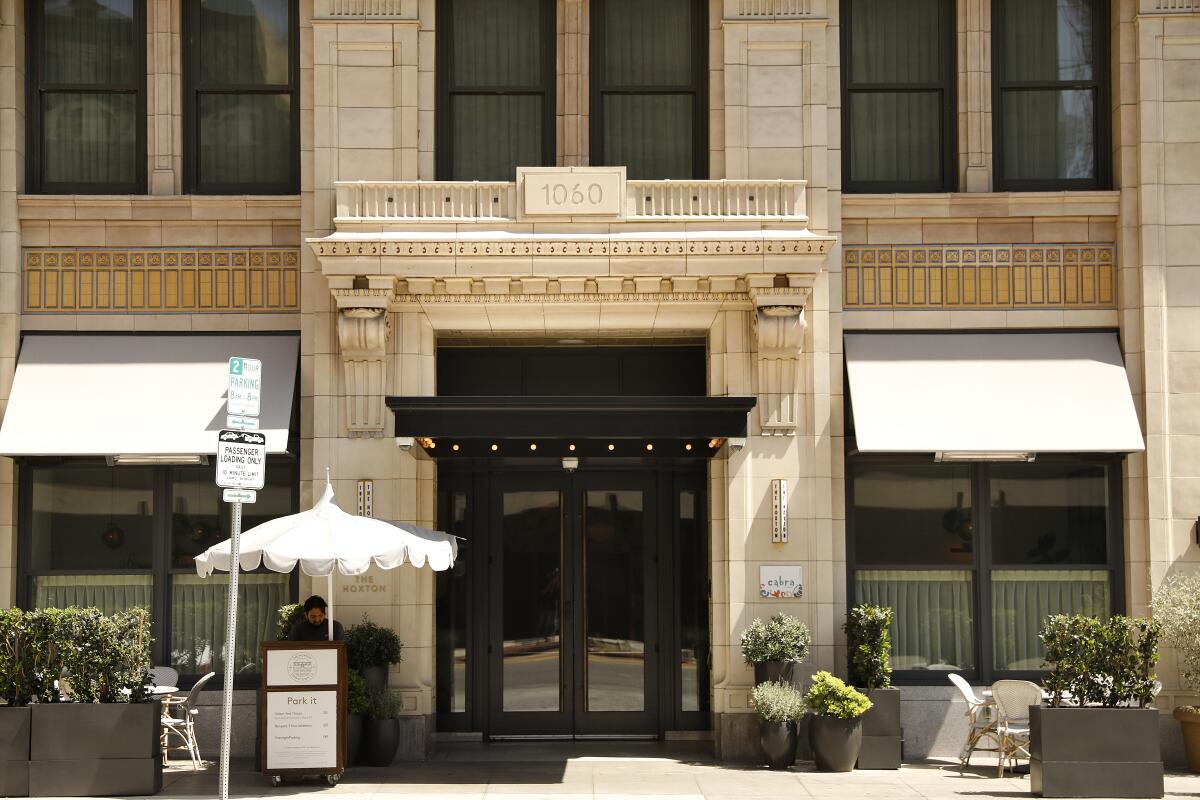
One example of this is Provençal cooking, between Marseilles and the Italian border, as it overlaps with Italian food — a cuisine readily available in L.A.
Most of Rose’s intended parallels between France and Los Angeles can be found in Pays Basque, or the French Basque country, especially along the coast: surf culture and ingredients such as artichokes and almonds and olive oil have inspired Rose, who also sees a familiarity in the prevalence of Espelette pepper and tomato in Basque’s French-Spanish culinary crossover.
“That,” he said, “leads to the parallel of California and Mexico, the sort of cross-border cultural movement and diversity.”
While Café Basque will share a few hallmarks of Spanish Basque cooking, including live-fire-kissed meats and a range of pintxos, French Basque cuisine is, Rose noted, separate: a combination of traditional French technique and recipes, but prepared very simply. It is neither Spanish Basque, nor mainstream French. “Basque cooking is very different than what most people think of as French cooking,” Rose said. “In some ways it’s transnational. It requires a lot of finesse, but it’s very brute.”
His new menu will rely on live-fire cooking and rustic technique, envisioning a range of traditional Basque dishes made with California ingredients: white beans in local-vegetable broth; gratin de crabe caught from the California coast; sébaste au Español, or a classic roasted California rockfish with garlic and lemon and tomatoes in green olive oil; and ttoro, a fish soup with squid and shellfish and local fish cooked somewhat like a bouillabaisse.
The hospitality and food are hearty in Nevada’s Carson Valley, where immigrant shepherds left their mark.
The new restaurant will take over the entire ground floor of the Hoxton hotel, operating the lobby bar, the coffee shop and the sleek brass-accented restaurant space formerly inhabited by Sibling Rival. Boka Restaurant Group operates both the ground-floor restaurant space, as well as the rooftop, now home to Stephanie Izard’s Cabra. The hospitality group is also partnering with Rose for Chicago’s forthcoming Le Select — a homecoming of sorts for the chef, who grew up in Chicago and is returning, yes, to visit family, but also because he simply wanted to open a brasserie. “A brasserie is a French restaurant of course, but it’s where commerce and cuisine meet, which feels very Chicago to me,” he said.
When Rose visited downtown L.A., he was struck by the neighborhood’s remaining Art Deco details and was also reminded of hotels in Biarritz. For his own space, the Sibling Rival dining room featured a kind of modern diner-like setup with a long counter, which could lend itself to a relaxed, informal concept for Rose. Café Basque, he said, will be his most informal restaurant yet.
His role has shifted in the nearly two decades since opening Spring, evolving from proprietor and head chef to an international operations manager and chef-partner for multiple concepts, including Paris’ La Bourse et La Vie, which he transformed in April and May into Le Borscht et La Vie, serving Ukrainian cuisine with the help of displaced war refugees. His expanded duties mean more travel — with France serving as the primary home base for Rose, his wife and children — and oversight of hundreds of employees. Beginning in June, his new Los Angeles team will concentrate its efforts on cooking in the Café Basque space, where Rose will himself also be cooking and stationed into the fall, at which point he’ll begin rotating Chicago more frequently into his visits to his restaurants in Paris, L.A. and New York City.
Three Ukrainians have found refuge, and a way to share the recipes of their homeland, in a fancy Paris restaurant.
The chef estimates Café Basque will open in late July, perhaps in phases, but always offering something throughout the day, even in the form of more informal bites at the coffee stand at one end of the building, or at the bar and lounge: Basque cheesecake and other pastries, perhaps with a café brûlot to wash it down. Breakfast and brunch might involve beignets with ham, French tarts, sheep’s milk yogurt, millet (traditional cornmeal porridge, here served with spinach, a little honey and olive oil), and a Basque-inspired take on a Croque monsieur.
Rose said he hopes his first Los Angeles restaurant will convey the breezier, more casual emblems of dining in both Pays Basque and L.A.
“The food we always take very, very seriously. The danger is always that the food becomes too serious,” he said. “In some ways it’s like we’re trying to find the ultimate balance. Maybe it’s like the picture in the frame, you know? Painters used to pick their frames as well — they decided what was around it is equally important.”
More to Read
Eat your way across L.A.
Get our weekly Tasting Notes newsletter for reviews, news and more.
You may occasionally receive promotional content from the Los Angeles Times.
